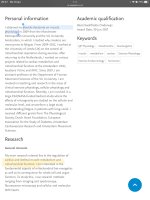Happy for your progress! First thought, Jak1 was required for both signaling and biologic response induction by IFNα and IFNγ, however it is also needed for induction of anti inflammatory IL-10–dependent responses as well as quite a number of others that you are also blocking now ongoing. It seems you are not blocking the IFNa (if stuck on) leading to IFNy and turning it off, instead blocking the response effect of that signaling, but in doing so also blocking the effects of other important cytokine responses below. IFN-a, IFN-,y, and EGF all lead to the phosphorylation of Jakl and Statl, which might suggest a linear pathway with Jakl as the final active kinase after IFN-a activation of Tyk2 and IFN-y activation of Jak2. Not a great place to target it seems but at minimum maybe some day on/day off experimenting rather than every day.
https://www.nature.com/articles/s41392-021-00791-1 https://www.cell.com/cell/fulltext/S0092-8674(00)81166-6 https://www.science.org/doi/10.1126/science.8197455 https://pubmed.ncbi.nlm.nih.gov/12686512/
JAK1 is widely expressed in tissues and can phosphorylate all STATs. JAK1 is phosphorylated by four cytokine-receptor families: (1) Cytokine receptors with the γc receptor subunit, IL-2 receptor, IL-4 receptor, IL-7 receptor, IL-9 receptor, and IL-15 receptor; (2) class II cytokine receptors include the IFNα/β receptor, IFN-γ receptor, and IL-10 family cytokine receptors; and (3) receptors with a gp130 subunit, including the IL-6 receptor, IL-11 receptor, ciliary neurotrophic factor (CNTF) receptor, oncostatin M (OSM) receptor, leukemia inhibitory factor (LIF) receptor, and cardiotrophin-1 (CT-1) receptor.
34 JAK1 can promote body haematopoietic function after being activated by IL-3, IL-5, IL-7, granulocyte–macrophage colony-stimulating factor (GM-CSF), or granulocyte colony-stimulating factor (G-CSF).
35 JAK1−/− mice are perinatal dead and exhibit neurological disease and severe lymphocyte damage caused by deficient of LIF and IL-7 signal, JAK2-knockout mice exhibit specific defects in IFN-γ-related biological responses, but they do not respond to IFN-α or IFN-β. It also has numerous other effects mentiioned and appears not good to constantly inhibit without breaks.

